Looking for the perfect summer read for Pride Month? Want to learn more about Queer history at Carolina? The University Libraries has you covered!
Check out e-books and audiobooks on OverDrive
The Libraries’ LGBT Reads collection on OverDrive includes more than 500 e-books, audiobooks and graphic novels. The books in the collection are written by, for, or about members of the LGBT community.
You can also explore the Transgender Awareness OverDrive list, with over 50 books and audiobooks featuring trans, non-binary and gender non-confirming voices and stories.
Book and film recs from your library staff
Need help choosing a book or movie? See what the Library staff recommends!
Explore online exhibitions from anywhere
Narratives of Queer Identity
Learn about LGBT texts, from well-known novels to small-press serials. Materials from the Wilson Special Collections Library illustrate the queer community’s use of pen and print as weapons in the fight for equity.
Queerolina: Experiences of Place and Space Through Oral Histories
Hear LGBT stories directly from UNC-Chapel Hill students and alums. The Queerolina map connects oral histories to specific places on Carolina’s campus. Then, learn how you can share your story!
See LGBT Materials from Carolina’s collections
LGBT artists and composers
During June, you can visit the Music Library to see a display highlighting materials on LGBT artists and composers. The display includes holdings from the Music Library and the Southern Folklife Collection.
Buttons from the Lew Powell Memorabilia Collection
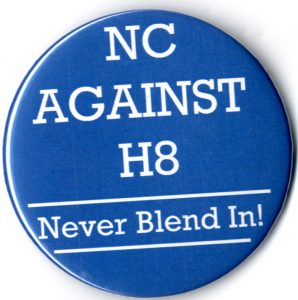
Button from a North Carolina organization protesting anti-gay marriage laws.
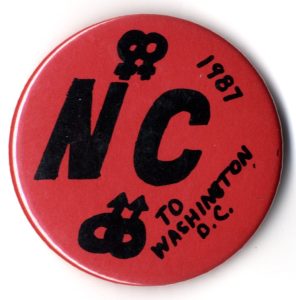
On October 11, 1987, an estimated 200,000 people participated in a march in Washington, D. C., to advocate for gay and lesbian issues.
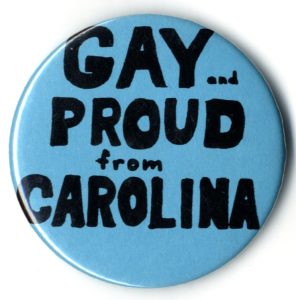
At the 1987 march in Washington, participants advocated for issues including legalization of lesbian and gay relationships and recognition of the severity of the HIV epidemic.
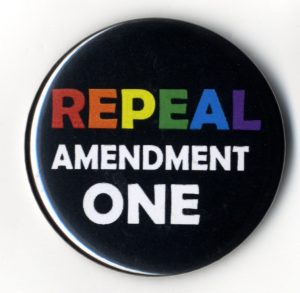
Button protesting Amendment One, which prohibited the state of North Carolina from recognizing or performing same-sex marriages or civil unions.
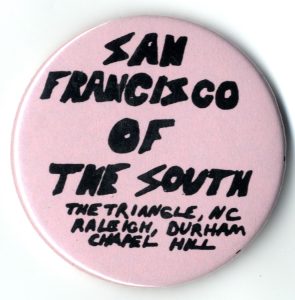
Button from the first Durham PrideFest event in 1986. Participants advocated for gay and lesbian rights and worked to highlight the HIV/AIDS epidemic.


